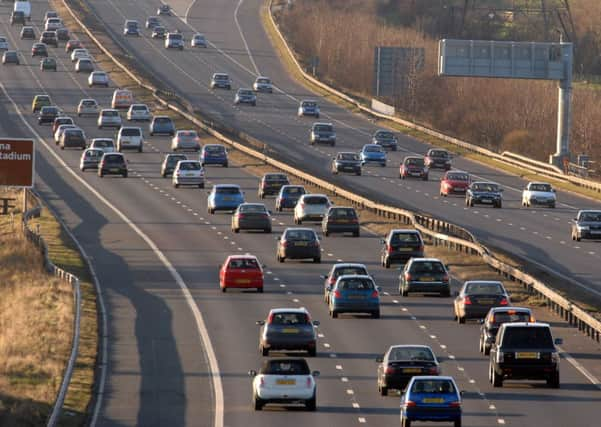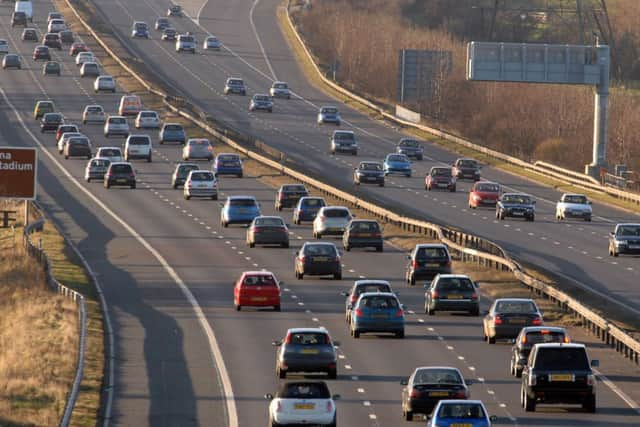VIDEO: 60 mph limit for stretch of M1


The Highways Agency is proposing to implement a maximum mandatory speed limit of 60mph between junction 28 at Mansfield and junction 35a at Sheffield and Rotherham.
The new restriction would apply from 7am to 7pm, seven days a week, in a bid to cut air pollution.
Advertisement
Hide AdAdvertisement
Hide AdThe consultation began on Monday and will close on 3rd March.


Environmental assessments carried out on the proposed smart motorways schemes on that section of the M1 showed there was likely to be an adverse impact on local air quality if the motorway continued to operate at the national speed limit (70mph).
The Highways Agency said the mandatory speed limit will only be in place for as long as necessary to mitigate significant air quality impacts, but was likely to remain for several years.
In its document, it stated that the current use of the 70mph speed limit for motorways was having ‘adverse impacts on air quality’ and that cutting it would reduce emissions.
Advertisement
Hide AdAdvertisement
Hide AdIt also said the change would bring ‘reduced congestion, increased capacity and improved journey time reliability for users of the motorway.’
The agency said it could change its plans, by limiting the operation of the lower speed limits to peak hours, or Mondays to Fridays.
The length of the stretch of road affected could be shortened too.
The consultation pack has been sent to key stakeholders, such as local authorities, transport associations and emergency services.
Advertisement
Hide AdAdvertisement
Hide AdThe consultation document is published on: www.gov.uk/government/publications to give other interested parties or individuals the opportunity to comment.
Smart motorways add extra capacity by converting the hard shoulder into a permanent running lane which is supported and controlled by variable mandatory speed limits to manage traffic and reduce congestion.
Construction is scheduled to start in spring 2014.